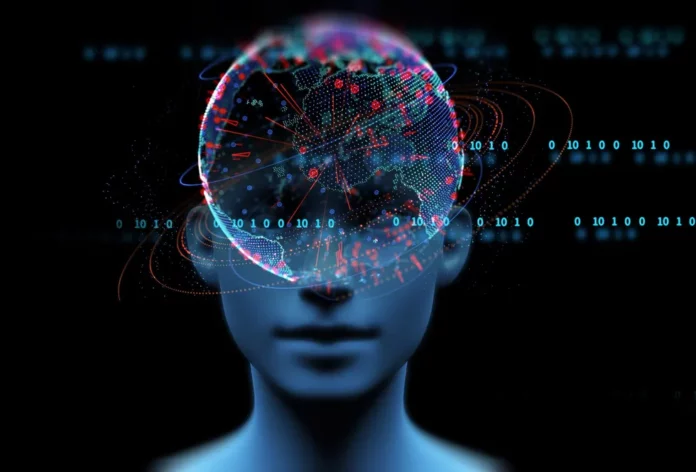Cognitive Science is a multidisciplinary field that studies the human mind and brain. It includes the fields of psychology, linguistics, computer science, and neuroscience.
The study of cognition can help you in many different ways. It can help you in your career as a psychologist, a neurologist, or a business manager.
To Learn More About the Human Mind
So, what are cognitive science courses? Cognitive Science is a broad subject that encompasses various studies like psychology, artificial intelligence, anthropology, neuroscience, and philosophy. It aims to understand the human mind and its functions by analyzing different areas of expertise to achieve this goal. As a result, the field of cognitive Science has something for everyone to learn about.
The field of cognitive Science is interdisciplinary, and the contributions of various affiliated disciplines, including linguistics, computational approaches, cognitive neuroscience, psychology, and anthropology, shape its study. As such, choosing a concentration in the field that aligns with your interests is possible.
For example, the evo-devo concentration explores how cognitive processes can be understood through the emergence of behavior over ontogenetic and phylogenetic timescales. Alternatively, the mental neuroscience concentration examines cognition through neurobiological approaches to understanding the nature of the brain and its functions. In addition, the mind and culture concentration focuses on understanding cognition in the context of its fundamental embedding in culture. These areas are interconnected and offer unique insights into the human mind.
To Learn More About Human Behavior
Cognitive Science is a multidisciplinary field that studies how the human mind works. It draws from various fields, including psychology, biology, philosophy, computer science, education, anthropology, and linguistics. It is the study of human intelligence and behavior, focusing on topics like memory and perception, language processing, learning and expertise, and artificial intelligence.
Students will learn how to use electrical and magnetic brain activity recordings to study cognition and behavior. This includes the study of normal and abnormal perception, processing, decision-making, hallucinations, and memory.
This course introduces the student to various computational modeling techniques in the cognitive sciences. The student will develop an understanding of the mathematical foundations and hands-on experience using MATLAB for hypothesis testing, statistical inference, and model fitting. This is an essential introductory course for those planning careers in cognitive Science, computer science, data analytics, or a related field.
To Learn More About Artificial Intelligence
Cognitive Science is a multidisciplinary field that interfaces multiple disciplines such as neuroscience, computer science, psychology, artificial intelligence (AI), philosophy, anthropology, and more. It focuses on understanding the cognitive functioning of the human mind and its underlying mental processes.
In addition, students studying cognitive Science will be exposed to formal methods of analysis and modeling commonly found in majors in the physical and biological sciences but often absent from majors in the social sciences and humanities. This will help them become critical thinkers and a better communicator in their future careers.
For example, a student who takes the Decision and Cognition track will receive sustained instruction in one important cognitive science content area and be exposed to theoretical approaches to judgment and decision-making from psychology, emerging neurocircuit models of reward and reinforcement from neuroscience, algorithmic methods to planning and action selection from computer science, and formal approaches to rational choice theory and irrationality from philosophy and economics. Exposure to various disciplines will make the cognitive scientist more marketable in the workforce.
To Learn More About the Human Nervous System
Cognitive Science studies human behavior, including how the brain determines it. It uses ideas from psychology, anthropology, biology, physics, computer science, linguistics, education, and sociocultural sciences to understand how the mind works. This field can be helpful to students who want to pursue careers in artificial intelligence, psychiatry, and counseling. It can also benefit students who wish to become teachers or lawyers.
A central aim of Cognitive Science is to determine the mental processes that underlie and govern cognition. It also seeks to develop theories and models that can be used to predict human behavior. This is done by analyzing data from psychological experiments, clinical trials, field observations, computational simulations, and neurophysiological recordings. Cognitive scientists can better predict how the brain and body work together to create a conscious, deliberate activity using this approach. They can also better explain the underlying mechanisms of learning and development and the relationship between human and artificial intelligence. This course allows cognitive Science honors students to delve deeply into a topic of their choice, culminating in an honors thesis with a department stamp.
To Learn More About the Human Culture
Cognitive Science covers many topics, including how the brain works. It combines different disciplines, including computer science (especially artificial intelligence), biology, psychology, anthropology, and philosophy. This interdisciplinary approach allows students to learn more about the human mind from multiple perspectives.
This program allows students to create a concentration by selecting four courses that focus on a specific topic or theme within the field of cognition. These courses can be taken from various academic fields, such as linguistics and computer programming. Students may also request approval for a system outside the list of approved courses to satisfy the concentration requirements by submitting a proposal and rationale.
In addition, the concentration requires a gateway course and a depth course. The gateway course introduces students to the fundamental issues in cognitive Science. It introduces the theories, evidence, and research methods in the major sub-disciplines of cognitive Science: linguistics, cognitive psychology and neuropsychology, history of cognition, computational approaches, and philosophy of mind. It also teaches students the scientific method: developing a research question, hypotheses, operational definitions, observational and experimental design (e.g., between-groups, factorial experimental, correlational studies), and research ethics.















